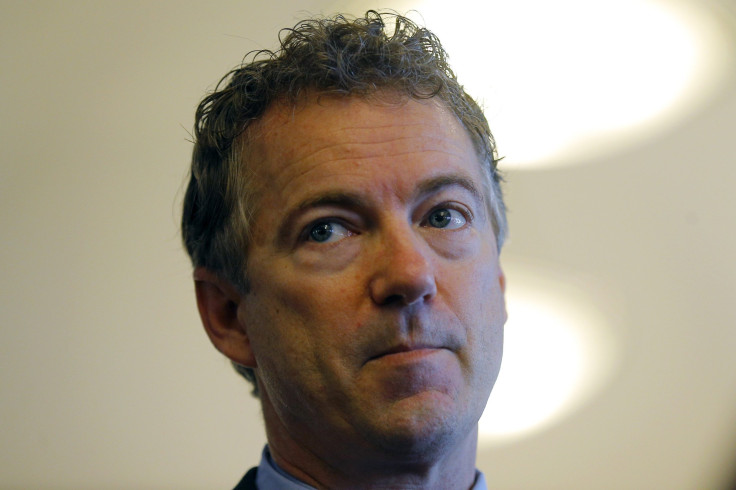Anti-Vax Measles Controversey: Rand Paul Tries To Inoculate Himself From Vaccine Criticism

WASHINGTON -- Sen. Rand Paul wants to be so sure the public doesn't think he's an anti-vaccine extremist, he took a New York Times reporter with him Tuesday when he went to get a shot himself. He even made sure there was a photo.
It was damage control for Paul, R-Ky., lambasted as an anti-science panderer who would put children in harm's way. Conservatives may play to their base by denying climate change or questioning evolution, but those positions don't come without political risks. When a pair of likely 2016 GOP candidates started making skeptical comments about vaccines this week, in the face of a growing measles epidemic, Democrats pounced.
New Jersey Gov. Chris Christie, who started what appeared to be a Republican line questioning the need for vaccines when he said that parents should have "a choice," tried to walk back his comments a day later.
Paul put himself at the center of the growing controversy when he said in an interview Monday vaccination should be voluntary. “I’ve heard of many tragic cases of walking, talking normal children who wound up with profound mental disorders after vaccines,” Paul said in an interview with CNBC. He didn't specifically mention autism spectrum disorders, but appeared to be referring to that widely disseminated -- but thoroughly debunked -- link.
Paul, who represents the Libertarian wing of the Republican Party, made the case that it should be about choice. “I’m not arguing vaccines are a bad idea. I think they’re a good thing, but I think the parents should have some input," he said in the interview. "The state doesn’t own your children. Parents own the children and it is an issue of freedom.”
House Speaker John Boehner tried to quash any notion that the GOP rejects the science or public health concerns behind vaccinations. "I don’t know that we need another law, but I do believe all children ought to be vaccinated," he said Tuesday.
Even the White House was getting asked about vaccines. President Obama, on NBC, advised people to "get your kids vaccinated," and Hillary Clinton tweeted her own views, positioning herself as a concerned grandmother.
The science is clear: The earth is round, the sky is blue, and #vaccineswork. Let's protect all our kids. #GrandmothersKnowBest
— Hillary Clinton (@HillaryClinton) February 3, 2015Paul’s shot in the arm Tuesday wasn’t the measles vaccine that is getting a lot of attention in the wake of an outbreak that originated in California’s Disneyland. The New York Times reporter who accompanied him to the Senate health clinic reported it was a hepatitis A booster shot. (The CDC recommends boosters for those who work with at-risk populations -- which Congress is not.)
Paul's decision to publicly get a vaccine might calm the criticism for now. But it won't inoculate him from the political consequences of any future remarks on controversial health issues.
© Copyright IBTimes 2025. All rights reserved.






















